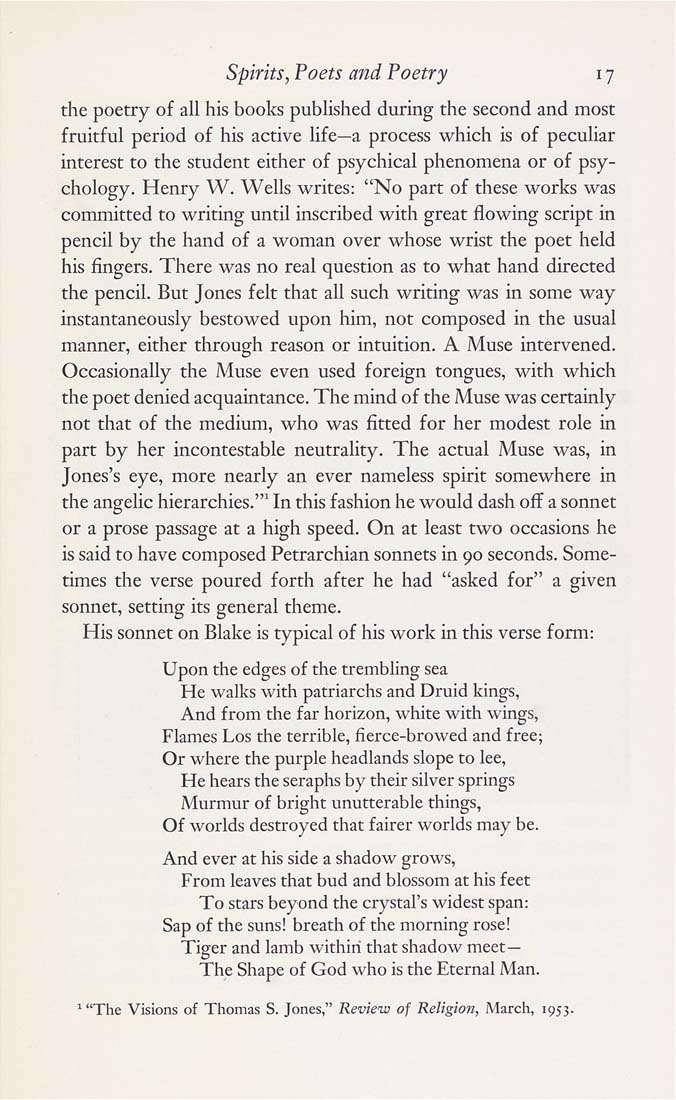Columbia Library columns (v.2(1952Nov-1953May))
(New York : Friends of the Columbia Libraries. )
|
||
|
|
|
|
| v.2,no.3(1953:May): Page 17 |

spirits, Poets and Poetry 17 the poetry of all his books published during the second and most fruitful period of his active life—a process which is of peculiar interest to the student either of psychical phenomena or of psy¬ chology. Henry W. Wells writes: "No part of these works was committed to writing until inscribed with great flowing script in pencil by the hand of a woman over whose wrist the poet held his fingers. There was no real question as to what hand directed the pencil. But Jones felt that all such writing was in some way instantaneously bestowed upon him, not composed in the usual manner, either through reason or intuition. A Muse intervened. Occasionally the Muse even used foreign tongues, with which the poet denied acquaintance. The mind of the Muse was certainly not that of the medium, who was fitted for her modest role in part by her incontestable neutrality. The actual Muse was, in Jones's eye, more nearly an ever nameless spirit somewhere in the angelic hierarchies.'" In this fashion he would dash off a sonnet or a prose passage at a high speed. On at least two occasions he is said to have composed Petrarchian sonnets in 90 seconds. Some¬ times the verse poured forth after he had "asked for" a given sonnet, setting its general theme. His sonnet on Blake is typical of his work in this verse form: Upon the edges of the trembling sea He walks with patriarchs and Druid kings. And from the far horizon, white with wings. Flames Los the terrible, fierce-browed and free; Or where the purple headlands slope to lee. He hears the seraphs by their silver springs Murmur of bright unutterable things, Of worlds destroyed that fairer worlds may be. And ever at his side a shadow grows. From leaves that bud and blossom at his feet To stars beyond the crystal's widest span: Sap of the suns! breath of the morning rose! Tiger and lamb within that shadow meet— The Shape of God who is the Eternal Man. * "The Visions of Thomas S. Jones," Review of Religion, March, 1953. |
| v.2,no.3(1953:May): Page 17 |







